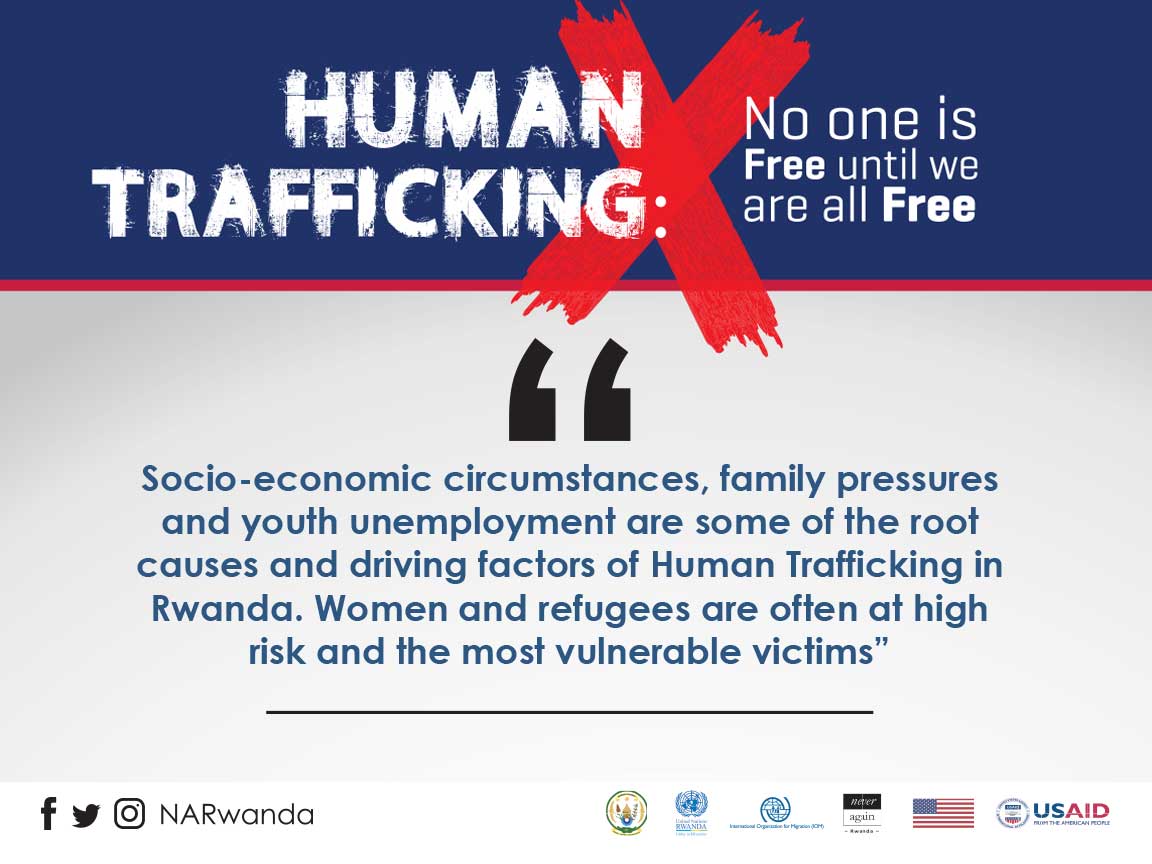Human trafficking, the modern day form of slavery, affects the lives of many people globally. It is against this background that NAR conducted comprehensive research on the situation of human trafficking in Rwanda. The research aimed to determine the scope of the issue of human trafficking in Rwanda and its characteristics and associated factors, in order to formulate evidence-based recommendations for strengthening the response to human trafficking locally and nationally.
On 19th July 2019, in partnership with IOM Rwanda and the Ministry of Justice through the support of USAID Rwanda hosted a national validation meeting of the research report on understanding the causes, effects and impact of human trafficking in Rwanda. During this validation meeting, the upcoming awareness campaign against human trafficking was introduced and attendees were briefed on how to prevent human trafficking or report human trafficking.
Studies showed that that the root and driving factors of human trafficking include: socio-economic circumstances, family pressures, youth unemployment and vulnerability of women. It was also evident that refugees are at high risk for human trafficking as global literature reports that camps are often unsafe and increase exposure to risk factors, including human trafficking.
In Rwanda, Nyagatare, Burera, Rubavu, Rusizi and Gicumbi are the most affected districts by Trafficking in Persons (TIP). Between 2016 and 2018, 95.24% of victims in Rwanda were female.


